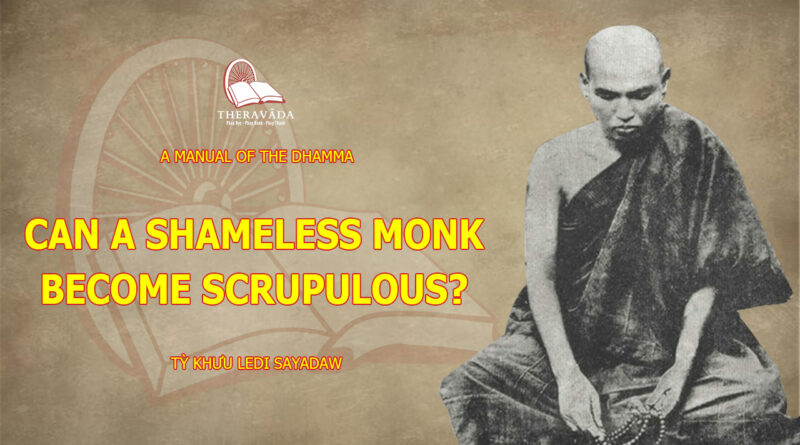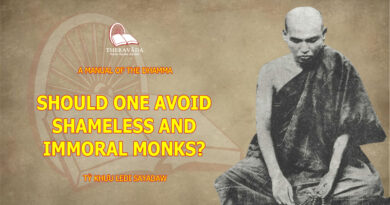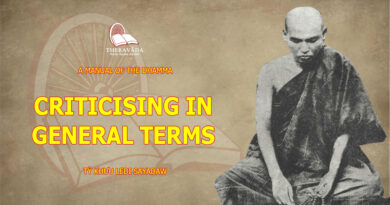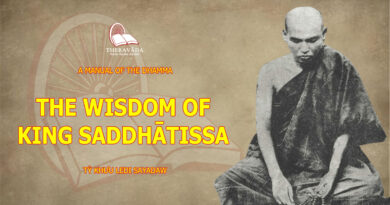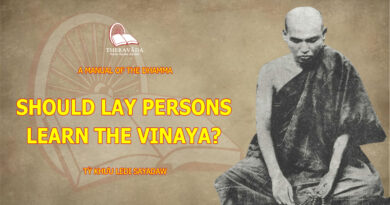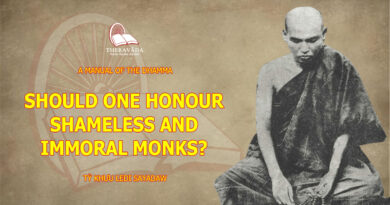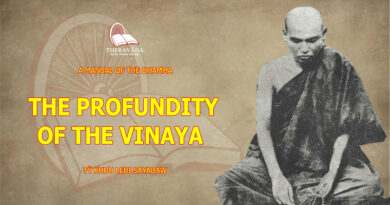Can A Shameless Monk Become Scrupulous?
“If a shameless monk becomes afraid of suffering in saṃsāra, or if he acquires moral dread, how can he become a scrupulous monk? Is it possible for him to become a scrupulous monk?”
There are two types of scrupulous monks: a temporarily scrupulous monk, and a naturally (stable)scrupulous monk.
How one can attain temporary morality has been explained in the first answer. With regard to complete moral attainment, the answer was given in the reply to the sixth question.
The essential point is this: attainment of temporary morality is concerned with good thought-moments. Thus a monk becomes shameless if he deliberately breaks a Vinaya rule in full knowledge of it. At this time he is a shameless monk. If he purifies his offence in the proper way he again becomes a scrupulous monk. Even the arising of the intention to purify his misconduct or transgression makes him scrupulous again. So his motivation is crucial.
Although he is free from any offence or guilt due to his reformed mind and acts of confession, he still possesses only temporary morality. So the next stage is more important. This is the stable stage due to the complete elimination of self-view. The destruction of self-view is essential to become a naturally scrupulous monk.
In the question the terms, “a good person” (sappurisa) and “shameless” (alajjī) are used. He is called “scrupulous” if he purifies the evils that arise at the body door and vocal door only. A good person or a good monk, in the technical sense, means one who has purified his mental door, that is, he has achieved mental purity too. Thus the mere attainment of scrupulous status does not signify “a good person,” a mentally purified one. The essential point is that the Vinaya rules, if obeyed, guard against evils in the physical and vocal spheres only, which are gross. Purification of the mental sphere is not taught in the Vinaya and no offence arises if only mental evils appear. The Vinaya text declares that there is no offence in the mind door. No form of confession is found in the Vinaya for mental wrongs. No rules for mental discipline are given in the Vinaya.
So every monk, if he learns and practises the Vinaya rules very carefully, obtains physical and vocal good conduct. By abandoning these gross evil things one becomes scrupulous. However, innumerable faults and mental defects, which are not Vinaya offences, remain to be eradicated. They are evil, unskilful states. A good person needs to practise the virtues of a good person, which I have mentioned earlier. Only when these factors prevail can a monk or layman be classified as a good person.

